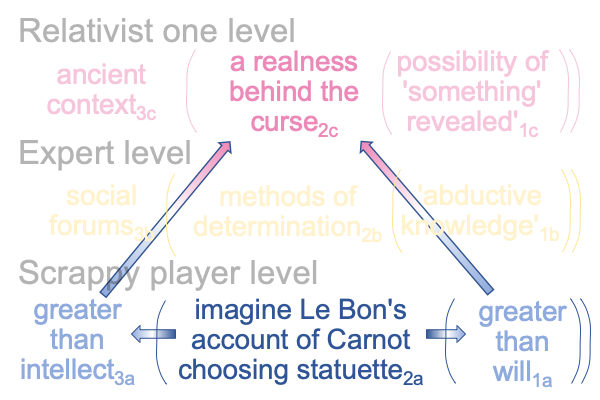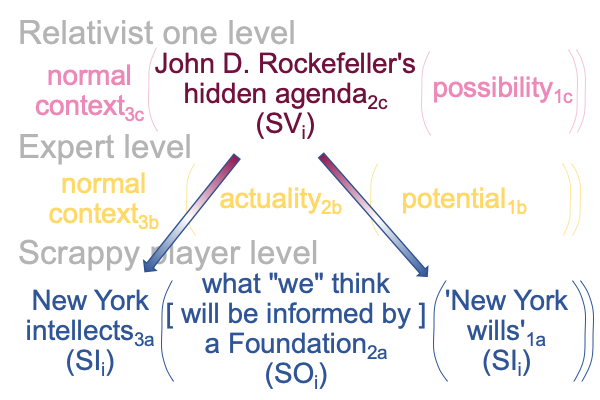0538 In chapter two, Stiles presents the French polymath, Gustave Le Bon (1841-1931), as a forerunner to Creel’s marketing campaign.
0539 According to an online encyclopedia, Le Bon is a Parisian medical doctor who takes an interest in psychology after returning, in 1884, from an anthropological tour of India. Not unsurprisingly, Le Bon returns to Paris with a treasure-chest of artifacts, to serve as gifts to his sponsors (so to speak). Unfortunately, the politician Sadi Carnot, then Minister of Public Works, chooses an artifact that Gustave had hoped that someone else might choose. Le Bon warns Carnot, the chosen statuette carries a curse. The owner of the statuette will die upon reaching the highest political office. Carnot is not impressed. He has no need for such superstitions. He takes the statuette.
Later, Carnot is elected fourth President of the French Republic.
Then, on June 24, 1894, Carnot is assassinated in Lyon by an Italian anarchist.
0540 To me, it seems that this event, ten years in the making, would cause any sensitive soul to step back and wonder, “What the hell was that about?”
Fuller calls the process, “metalepsis”.
Here is a picture of the interventional sign-relation.

0541 In 1896, Le Bon publishes his most famous book, titled The Crowd: A Study of The Popular Mind.
He proclaims (more or less), “We have entered the era of crowds. Crowds pose a riddle for the elites who would rule over them. How does a ruler convey the coming of one’s kingdom, without speaking directly of one’s kingdom? Can science be used to trick and manipulate public opinion? Can sheep participate in constructing the very corral that will hold them in, as the elites, the wolves in sheep’s clothing, feast?”
Listen, those with ears to hear.
An Italian anarchist steps out of a throng.
The kingdom of crowd management is at hand.
0542 Chapter two contains a litany of techniques. The Christian reads the list in horror, because the techniques call to mind the ministry of Jesus, the Christ. Christ never appeals to logic. Christ entices crowds with images and parables. Christ presents simple slogans that crystallize into penetrating truths. Christ exposes illusions while presenting what seems to be madness. Jesus works miracles to demonstrate his authority. Jesus asks folk to enter his kingdom. Jesus watches his reputation spread like a wildfire. It is all there. Every technique is later codified by the students of Le Bonand packaged as ways to gain power from crowds, in an Age of Crowds.
Thirty years later, George Creel’s Committee on Public Information proclaims, “The kingdom of Woodrow Wilson is at hand.”
0543 Is this the first lesson that must be proclaimed by the one who is capable of signifying, without the scrappy players knowing why (SVi)?
Oh… I mean to say… by someone in the employ of Woodrow Wilson, when he draws America, subtly, through public information, into the First Battle Among The Enlightenment Gods: The War to End All Wars (1914-1918)?
The kingdom of a new enlightenment god is at hand.
0545 Clues are everywhere.
Consider the progress achieved in the early twentieth century. In 1913, a nationwide income tax is enacted as an amendment to the American Constitution. In the same year, an amendment to the American Constitution removes the power of state legislatures to appoint their senators and gives the decision to the crowd… er… the voters of each state. In the same year, the Governor of the state of New York, William Sulzer, approves the charter of the Rockefeller Foundation, and the Foundation receives a $100 million dollar donation by John. D., himself.
0546 For those who have eyes to see, behold the coming of the kingdom of John D. Rockefeller. Consider the masterpiece titled, Libido Dominandi (2000, Fidelity Press) by E. M. Jones.
Here is the interventional sign-relation.

